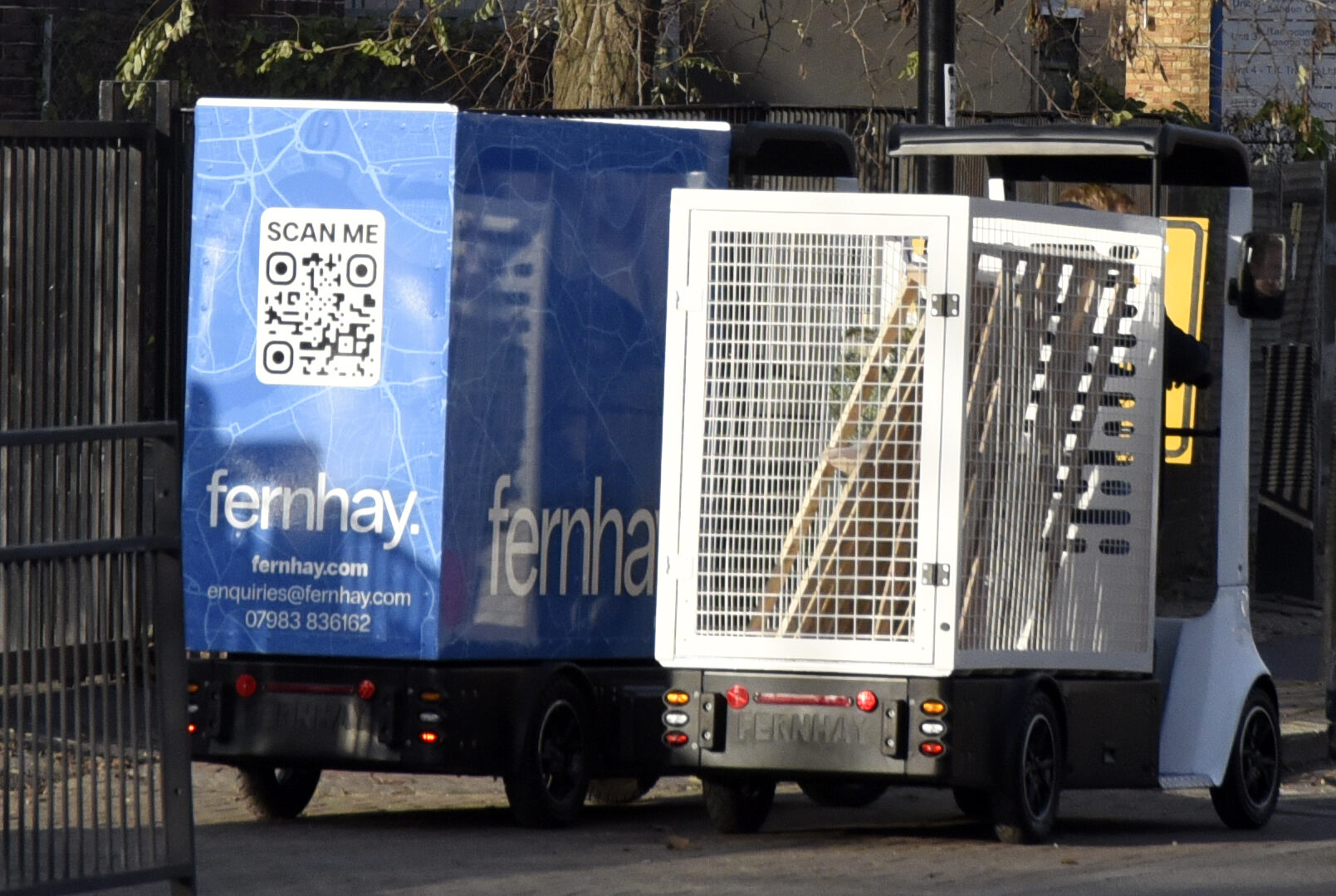Urban sustainability is an ever-growing concern in today’s world, with cities facing increasing pressures from population growth, traffic congestion, and environmental degradation. As a leader in innovative logistics solutions, Fernhay is addressing these challenges with their eQuad vehicle. This blog will delve into Fernhay’s impact on urban sustainability through their pioneering logistics solutions. The importance of sustainable urban logistics cannot be overstated, as it holds the key to cleaner, more efficient cities.
The Urban Sustainability Challenge
Cities around the globe are grappling with numerous sustainability issues. Traditional delivery vehicles contribute significantly to air pollution, noise, and traffic congestion. With the rise of e-commerce, the frequency of deliveries in urban areas has surged, exacerbating these problems.
Key Challenges:
- Traffic Congestion: Delivery vans clog city streets, slowing down traffic and increasing emissions.
- Environmental Impact: Conventional delivery vehicles emit large amounts of CO2 and other pollutants.
- Space Utilization: Urban areas have limited space, and parking large delivery vehicles is often problematic.
The compounded effect of these challenges not only affects the environment but also the quality of life for city residents. Addressing these issues requires innovative solutions that can seamlessly integrate into the existing urban infrastructure.
Fernhay’s Innovative Solution: The eQuad
Fernhay has developed the eQuad, a revolutionary vehicle designed to meet the unique demands of urban logistics. The eQuad is an electric-assist quadricycle that offers numerous benefits over traditional delivery vans.
Features of the eQuad:
- Compact Design: Easily navigates narrow streets and congested areas.
- Electric Assist: Reduces emissions and lowers the carbon footprint of deliveries.
- Enhanced Maneuverability: Allows for efficient parking and access to restricted areas.
The eQuad’s design is not only functional but also forward-thinking, aiming to anticipate and mitigate future urban logistics challenges. Its adaptability makes it a versatile tool in the quest for sustainable city logistics.
Environmental Benefits
The eQuad is not just a practical solution but also a significant step towards environmental sustainability. By replacing conventional delivery vehicles with the eQuad, cities can achieve substantial reductions in pollution and energy consumption.
Key Environmental Advantages:
- Zero Emissions: The electric-assist feature ensures that the eQuad operates without emitting pollutants.
- Energy Efficiency: Lower energy consumption compared to traditional vehicles.
- Reduced Noise Pollution: Quiet operation minimizes noise impact in urban environments.
These environmental benefits contribute to healthier urban living spaces, reducing the overall carbon footprint and promoting a more sustainable future. The reduction in noise pollution also enhances the quality of life for urban residents, creating quieter, more peaceful cityscapes.
Economic Impact
Adopting the eQuad can also lead to considerable economic benefits for businesses and municipalities. Lower operational costs, reduced need for large parking spaces, and improved delivery efficiency contribute to significant savings.
Economic Benefits:
- Cost Savings: Reduced fuel and maintenance costs compared to traditional delivery vehicles.
- Efficiency Gains: Faster delivery times in congested areas can lead to increased productivity.
- Space Efficiency: Less space required for parking and storage, translating to lower real estate costs.
In addition to these direct economic benefits, the eQuad can also help businesses improve their green credentials, potentially attracting eco-conscious customers and partners. This added value can enhance brand reputation and market positioning.
Future Prospects
The future of urban logistics looks promising with Fernhay at the helm. The company is continuously innovating to enhance the capabilities of the eQuad and expand its application across different urban settings.
Innovations on the Horizon:
- Enhanced Battery Life: Extending the range of the eQuad to cover larger areas.
- Smart Technology Integration: Incorporating IoT and AI for route optimisation and real-time tracking.
- Scalability: Developing solutions to cater to larger volumes of deliveries without compromising sustainability.
As technology advances, the potential for further improvements in the eQuad’s design and functionality is immense. Future iterations of the eQuad could incorporate renewable energy sources, making urban logistics even more sustainable.
Conclusion
Fernhay’s eQuad is paving the way for a sustainable future in urban logistics. Its innovative design, environmental benefits, and economic advantages make it a game-changer in the industry. As cities continue to grow and evolve, solutions like the eQuad will be essential in creating greener, more efficient urban environments.
By embracing such innovations, we can look forward to a future where city logistics not only meet the demands of urban populations but also contribute positively to the environment. The integration of eQuad into urban logistics systems represents a critical shift towards sustainability, highlighting the importance of forward-thinking solutions in addressing modern challenges.
Fernhay’s commitment to urban sustainability is not just a vision but a practical approach that is already making a difference. The eQuad represents a critical step forward in the quest for efficient and eco-friendly city logistics.

